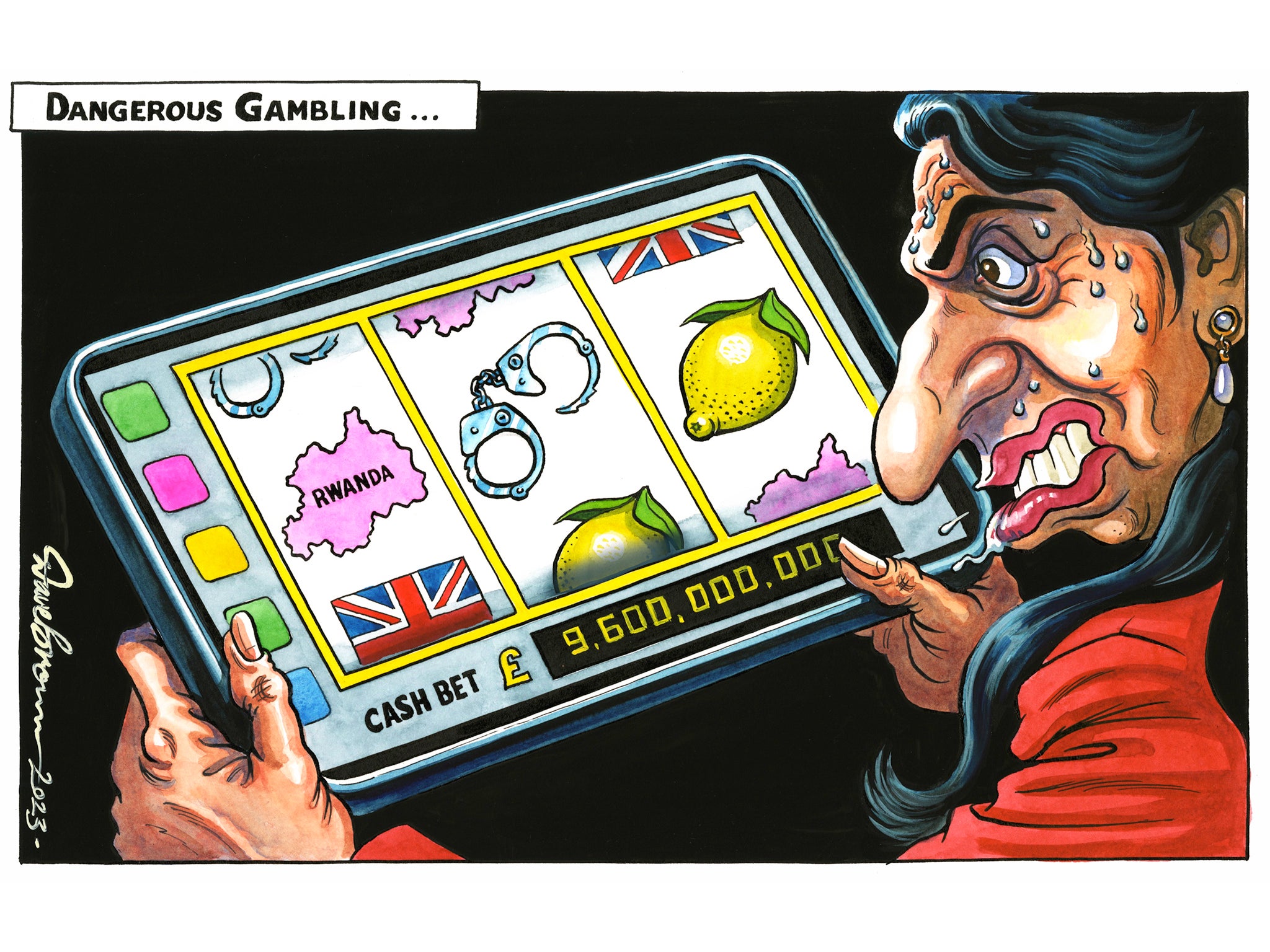Of all the social evils, it is gambling that is both the most insidious and the most scandalously ignored by government.
According to the most recent Gambling Commission figures, there are some 50,000 problem child gamblers in Britain; and a further 70,000 regarded as being at risk.
The publication of the government’s proposals to reform gambling is welcome, albeit long overdue; but they are too modest to do more than ameliorate the damage the present permissive gambling regime does to individuals, families, communities and public services such as the NHS and police who have to pick up the pieces.
Aside from restrictions on fixed odds betting terminals in high-street bookies a few years ago, little attention has been paid to this massive but silent problem.
The principal legislation relating to gambling was passed in 2005, when Tony Blair was prime minister, and long before sophisticated smartphone technologies could put a potential Las Vegas – and life-destroying parasitic gambling app – in every pocket.
Gambling has grown exponentially in recent years. Betting on major sporting events, and particularly on football, is now embedded in their televised and online coverage. During the commercial breaks especially, through email and social media bombardment, through special promotions, “free” bets and extensive ad campaigns, punters get suckered in.
They can bet on who will win, but also the score at half time, who’ll score first, take a gamble during the game – and lay money on virtually any sport anywhere in the world at any time of the day or night. Advertising appears on footballers’ shirts, on billboards, and even in the name of a stadium – it is ubiquitous.
The recent Premier League voluntary ban on front-of-strip sponsors was the least that could be done (and the back and sides of shirts are still for sale).
Seductive as all of that is, betting on sports is often only a “gateway” to the far more lucrative (for the companies) world of online gaming and casinos. It is here that the worst addiction can take hold. Regulation is minimal and is pathetically out of date.
The government has at least signalled that it knows there’s a problem, and it is encouraging that the new secretary of state responsible, Lucy Frazer, has made her gambling white paper a priority. She is right to float the idea of a compulsory gambling levy, earmarked to help pay for the social costs the sector generates.
Stake limits for young gamblers on online slot machines, automatic shuttering of an account when a loss reaches say £1,000 and preventing younger people from playing fruit machines are also useful reforms. However, the white paper says very little about restricting advertising and loss-leading promotions, or on an effective measure to take children out of the world of gambling completely.
There’s little enthusiasm from the industry for the kind of data sharing that would stop compulsive gamblers from opening multiple accounts, and not much sign that ministers want to force the pace, and the same goes for affordability checks.
The size of the new gambling levy has been left completely unclear, or there’s no sign of the government outlawing algorithmically over-generous “free spins” and other unethical enticements. With an industry the size and technologically complex that gambling now is, the Gambling Commission needs a resource boost as well as extra powers.
So the shape of any future legislation seems to be almost tokenistic in its effect – even if it gets that far. The white paper is out for consultation, and that means the betting giants will be able to mobilise their well-funded lobbying operations, and the “hospitality” for MPs that usually accompanies friendly conversations.
Just how pervasive these attempts to influence the political process can be has been highlighted in recent press sting operations. Given that the general election cannot be far away, the chances of anything happening beyond a tightening up of existing rules must be counted slim.
It would seem that the bookies got lucky again. The share prices of the larger companies hardly moved after Ms Frazer’s statement, and they will be left mostly unmolested until the next parliament, and another administration that finds it has better, more pressing things to do.
As the slogan goes, “when the fun stops, stop”, but for the gambling giants, it’s a safe bet that the fun, for them, will continue for some time yet. For their addicted punters, it’s a safe bet there’ll be further misery.







Join our commenting forum
Join thought-provoking conversations, follow other Independent readers and see their replies
Comments